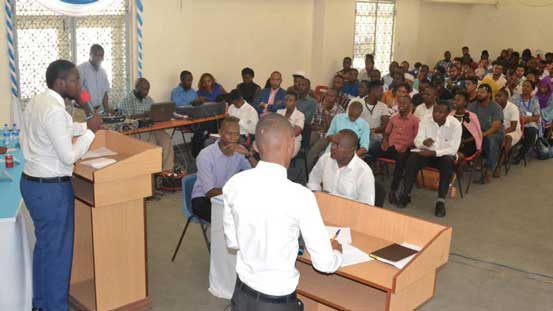×
The Standard e-Paper
Stay Informed, Even Offline

MOMBASA, KENYA: Rival groups at the Mombasa campus of the University of Nairobi have traded blame and accusations at a public debate ahead of tomorrow’s student union polls.
On Wednesday, rights group Human Rights Agenda and the university administration arranged the first moderated public debate between candidates from two groups vying to take control of the student union. Noisy supporters from either group booed or interrupted their rival and hailed their leaders.